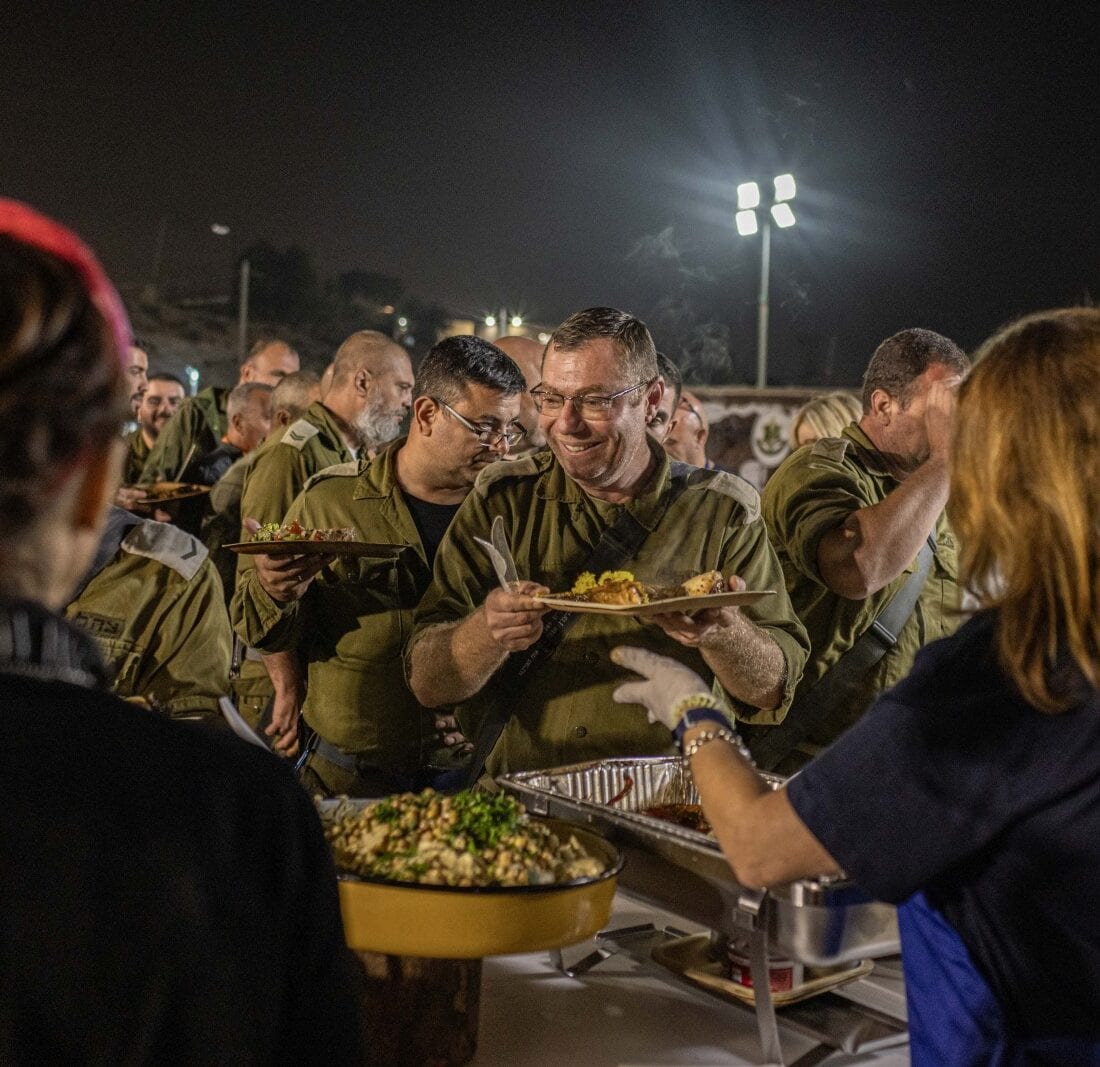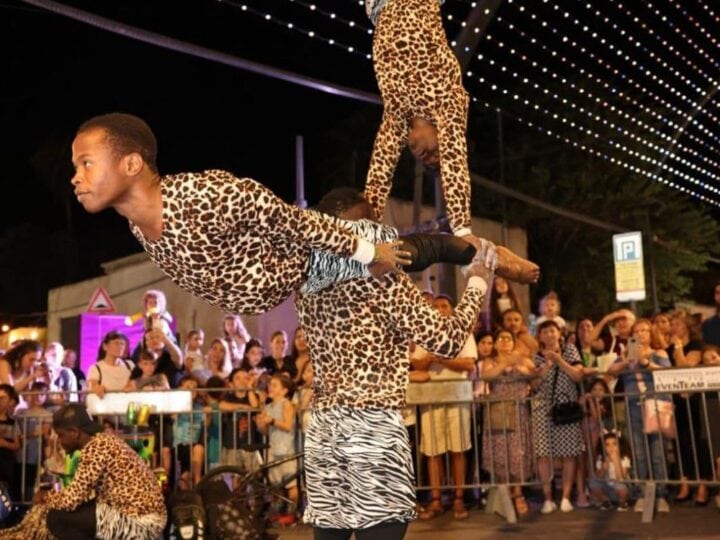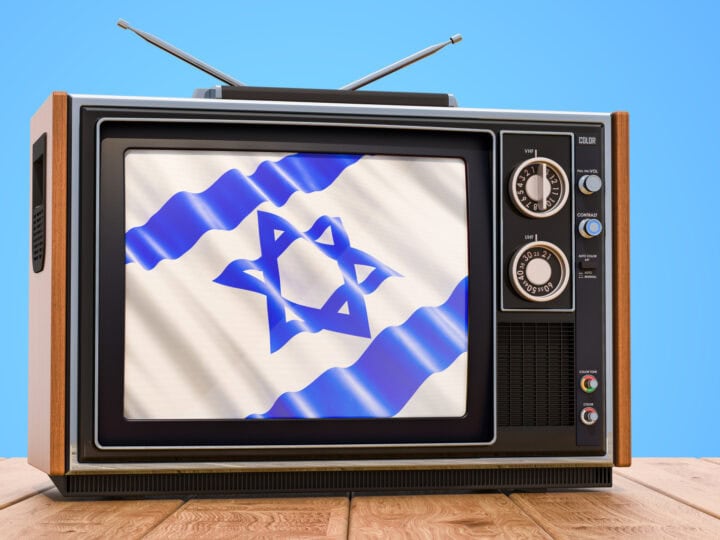As 2023 comes to a close, the Internet is abuzz with “words of the year” – the words that proved most popular or caught the zeitgeist of the last 12 months.
For Israel, we here at ISRAEL21c decided, the word of the year is most definitely resilience, considering that we’ve been facing internal political strife, followed by the horrific massacres, attacks and abductions in Israel’s southwest and the war with its impossibly heavy toll.
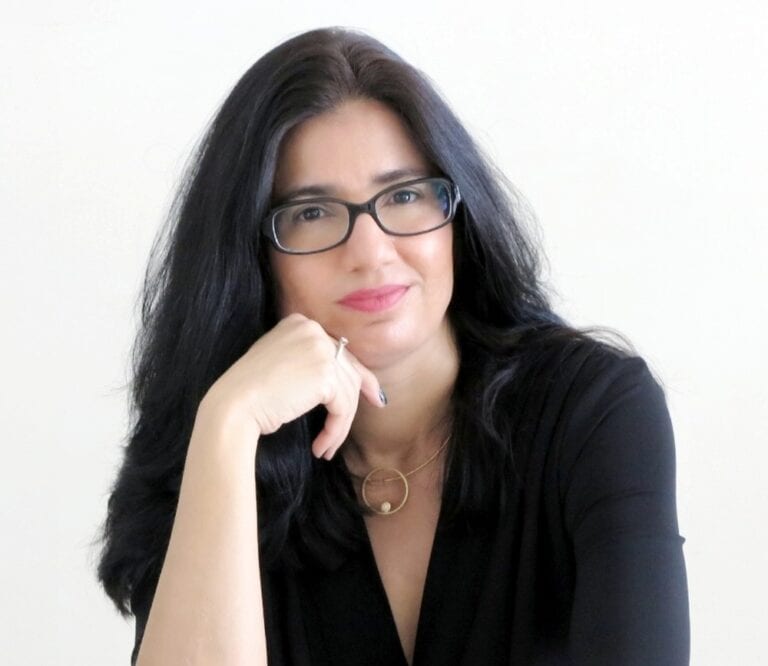
“I’d define resilience as the ability to enlist internal resources such as flexible thinking, creativity and a willingness to receive help, together with external resources, in order to overcome the challenges and obstacles that always face us,” explains Daniels, the professional director of ERAN, which offers mental health support by phone or online chat.
“Sometimes people think that resilience means going back to what we were before the crisis event – before the war, or before the interruption of life’s routine by a traumatic event. That it’s about bouncing back. But resilience is to bounce forward, it’s the ability to move forward while experiencing personal development and growth,” she tells ISRAEL21c.
“We in Israel have learned a lot from dealing with our continuous trauma, so we have this readiness which is also a significant element in building resilience, as well as coping mechanisms which we know have proven themselves,” she says.
And yet, Daniels notes, Hamas’ attack on Israel and the subsequent war are unlike anything ERAN has witnessed before.
“When there are rocket sirens, we know what we need to do. But we’ve never dealt with a situation where there are hostages, including children, women and babies. We’re also identifying with the victims, because the hostages remind us all of ourselves and the people who we love, whether our parents, our children, or our grandparents.”
Looking forward, Daniels stresses the importance of addressing the psychological needs of Israelis as individuals and as a society.
“We need to take care of people’s souls and ensure that people receive the help that they need. I don’t doubt that it’s going to be a very long process,” she says.
“In the last few months, alongside the horrors, we’ve also seen inspiring stories of volunteering, resilience and solidarity, and these will be determining factors. With solidarity, our broken hearts will begin healing, and light will be able to shine through the cracks.”
Delivering food to the front
One memorable way in which Israeli society has come together has been in preparing food for people evacuated from their homes and for soldiers. Among those was the Asif Culinary Institute of Israel, in Tel Aviv.
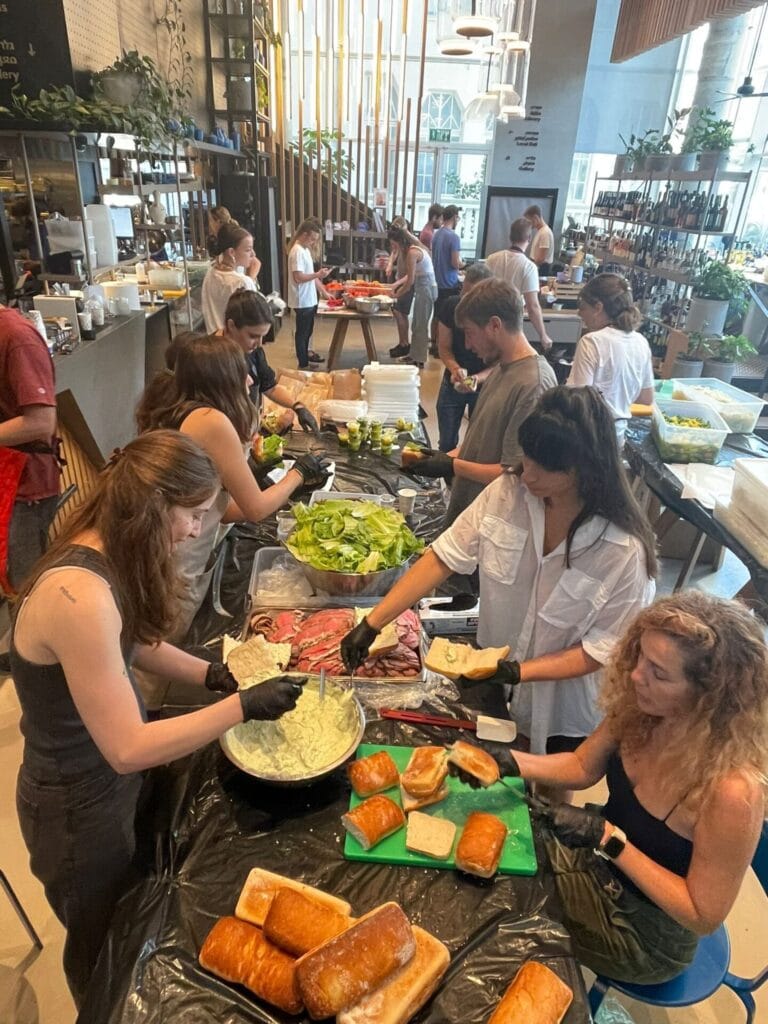
Asif has been spearheading two projects since the war began. The first was providing hot meals to civilians such as elders and people evacuated from their homes. Overall, the emergency cooking hub in Asif catered some 50,000 hot meals to those in need.
The second project enlists restaurateurs and chefs to cook for soldiers on the frontlines. Although the army provides battle rations and packed hot meals, tastier food boosts morale. And what better way to provide it than by giving business to struggling restaurants?
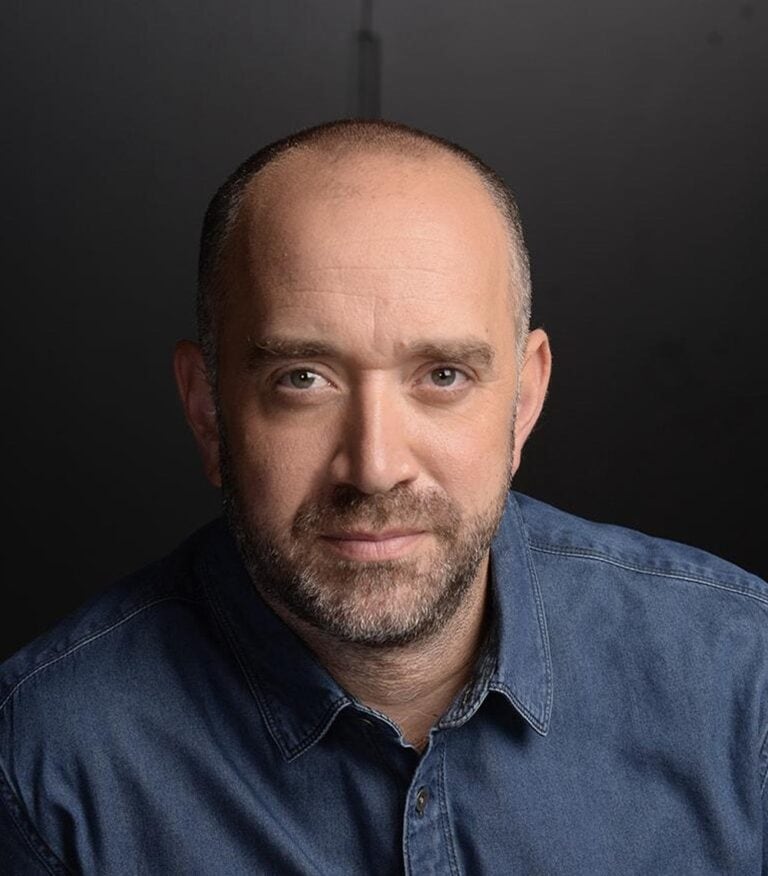
Each day, Asif invites a restaurateur or private chef to cook for two battalions – some 400 or 500 people per battalion. Asif pays them a grant to hire a few staff members and to cover supplies, kitchen costs and deliveries.
Asif CEO Chico Menashe explains that Israel’s restaurant industry has been experiencing difficulties all year, initially because of disruptions caused by anti-judicial reform protests that swept the country from January to October.
“Restaurants were losing income because people went out less, and there were whole areas where you couldn’t open because they were closed to traffic. The difficulties began then, but the most acute hit has been now, during the war.”
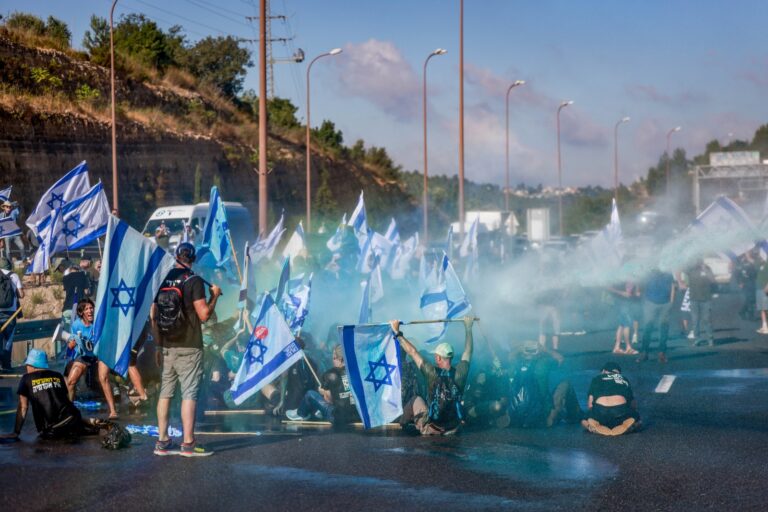
Some 40,000 soldiers have so far enjoyed a chef dinner while on duty. Those who prepare it also serve it to the troops and chat with them.
“It’s a lot more than just feeding them; the soldiers receive not only food but also the care and spirit that they bring with them, and it’s amazing,” says Menashe.
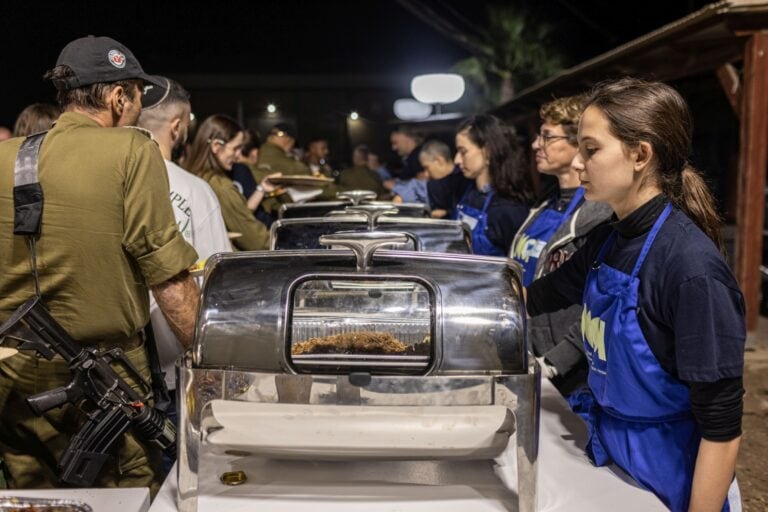
“I think that the fact that all I needed to do when we opened the emergency cooking hub was to post on social [media] and say that we need volunteers, and immediately had 100 to 200 people, is something that’s exclusively Israeli,” he says.
“We had a rare opportunity to see what ‘Am Yisrael Chai’ [the nation of Israel lives] means. Not as a cliché, but as the essence of our society.”
Striving for political flexibility
The essence of Israeli society is also being addressed by The Fourth Quarter, a grassroots group building trust among divided Israelis.
According to the organization, Israel, now in its 75th year, is experiencing a crisis of polarizing politics that is like a zero-sum game.
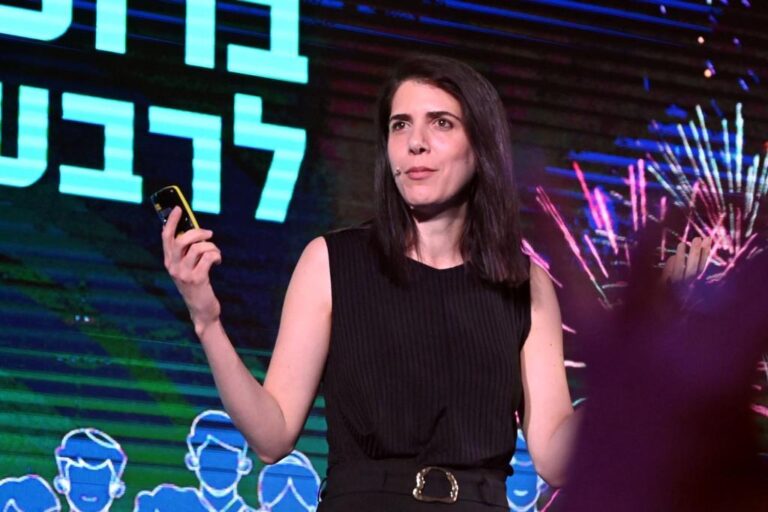
“There’s a big difference between resilience and resistance,” explains Ella Ringel, CEO of The Fourth Quarter. “Resistance means that you hold on really, really tight, but when you break, you snap. When you’re flexible, you bend and fall but you get up on your feet. The only way to create resilience in society is to create flexibility.”
“Israeli society on the eve of the judicial reform was inflexible. That’s what led up to October 7, to us falling apart and each side becoming entrenched in its position. It reached heights of discussions on ‘Israel’ and ‘Judea’ and how we’ll split up into two countries,” she says.
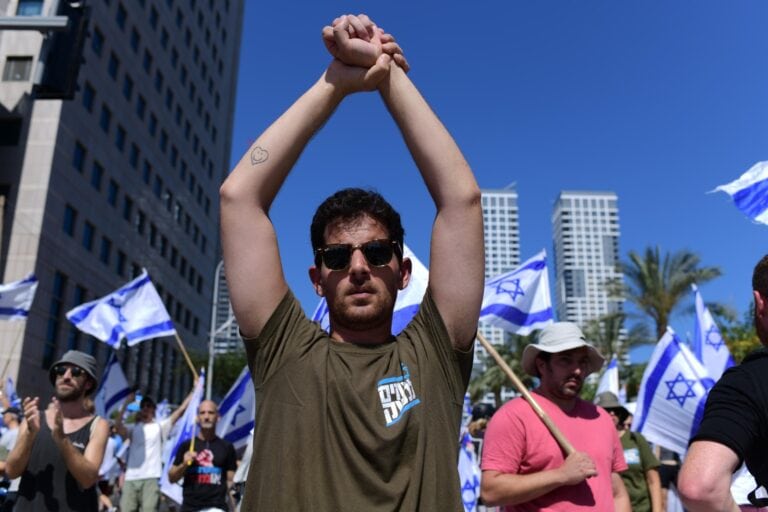
“That’s why within the very great darkness that descended on us October 7, we have a real responsibility to understand something about Israeli society,” she notes. “We saw that … we’re still dependent on one another.”
Israel’s resilience during the war is made up of three parts, Ringel says. First is a shared goal; second is active civic engagement; and third is cross-communality. “People went out and asked what they could do for other Israelis, for the country.”
Ringel says Israelis’ understanding that “everyone can give up a little on something for something larger is growing. Before October 7, we held lots of salons, and there was something in common in almost all of them. When we asked people what they’d be willing to give up on, they’d say that they were done giving up on things and that other people had to let go. That showed a lack of resilience; people were lacking flexibility.
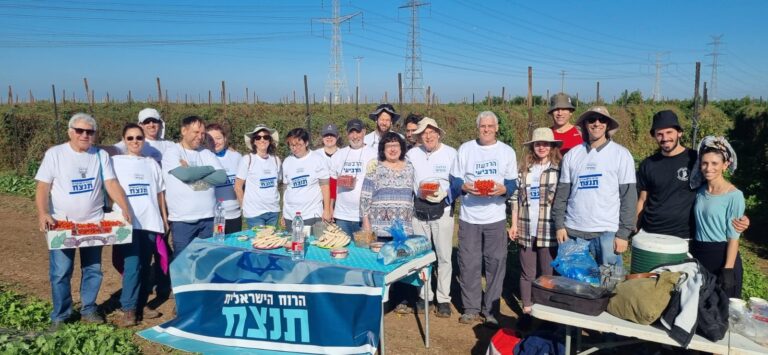
“Now, I think, we’re on the verge of a time period that if we know how to manage it well, we’ll be able to bring the country’s 75th year to a close when we’re working on a bigger story, on a shared fate, and demonstrating softness and flexibility, and getting back this kind of mutual responsibility for one another.”
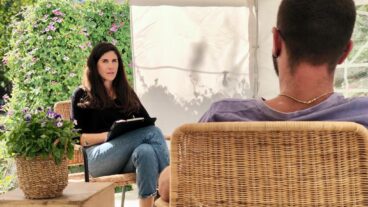
Mutual responsibility in the Start-Up Nation
Resilience, notes Elizabeth Dallal, is both a market quality and a personal quality. And as the director of investor relations at Israeli capital fund Amplefields Investments, which specializes in the local tech ecosystem, she has seen how it has manifested itself over the past year.
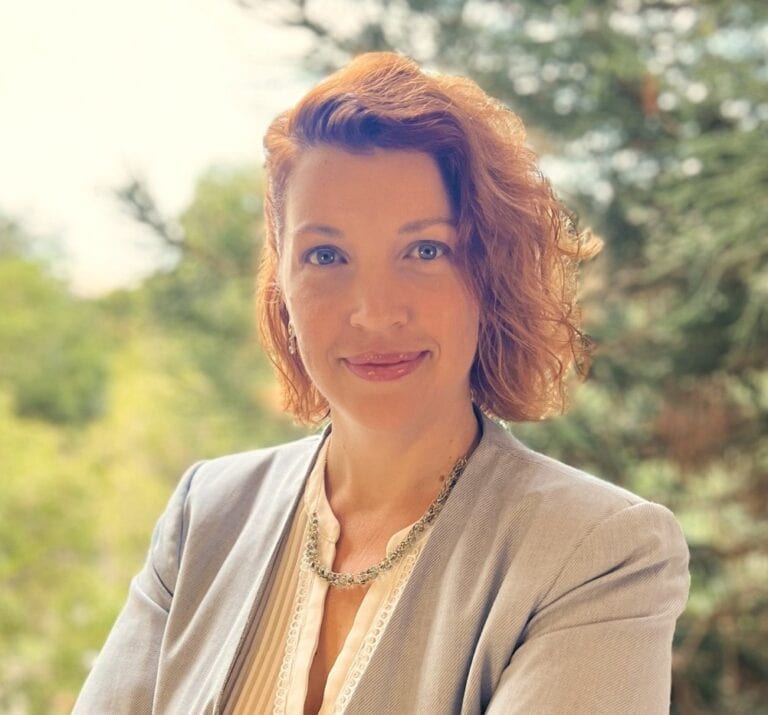
“We started out this year in a global financial climate characterized by scarce liquidity, and a political situation in Israel that made investors hesitant, so that was a big hit,” she explains.
“No one was expecting 2023 to be a banner year, but then it was all followed by the unprecedented attack and national tragedy and largest reserve call up in 50 years. Anywhere in the world it would have broken the economy, but that’s not what we’re seeing here,” Dallal tells ISRAEL21c.
“When we look at the response to what happened, there were so many grassroot initiatives that were being mobilized from all sectors, but tech was particularly well represented,” she says.
“For a company to say that a whole team is not going to be working on what had been planned for Q4 but on the civilian front, it shows a personal quality of management and an Israeli ethos of ‘all hands on deck.’ I think that it’s unique to Israeli culture to be so ready to give of ourselves to strangers when an emergency happens. That was built-in before this war happened.”
Her firm’s conversations with investors and colleague venture funds and founders reveal that later stage companies are adjusting their projections for the year, supporting their teams and protecting the value of their company while also participating in the national response, with the understanding that raising a major round is not a realistic option right now.
“There are rounds being raised, which is a really good indication. These are mostly A or B rounds or bridge financing, and mostly Israeli VC funds’ investment in early-stage startups,” she adds.
“For a year that started out the way it did, it’s really encouraging to see even that happening. When you see seasoned investors who know the Israeli tech scene well respond with investment in early-stage startups, that means that they recognize the underlining value and opportunity.”
Dallal says the response of the VC community has been resounding. “We’ve got the Israel Innovation Authority, TechShield, Iron Nation – all these examples of emergency funds that were raised by Israeli VCs meant to extend the runway for startups in the war.”
These emergency funds, she says, are focused on helping startups that were about to raise money from large international investors before the war dashed the deals.
“All of those social norms that we have, we just kind of turned up the volume and intensified. We didn’t have to reinvent the wheel in order to face the challenges posed by this war. Things that were innate to Israeli culture were just turned up,” says Dallal.




